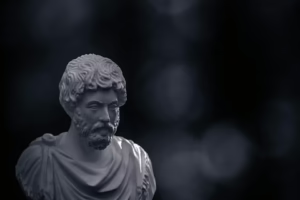Philosophy and the Human Experience: Finding Meaning in Everyday Life
Introduction
Philosophy has long sought to understand the human experience, exploring the complex tapestry of existence that weaves together questions of meaning, purpose, and morality. From ancient philosophers like Socrates and Aristotle to contemporary thinkers, the pursuit of wisdom has been a constant thread in human history. This article examines how philosophy can illuminate our everyday lives, guiding us to find deeper meaning in our experiences.
The Philosophical Endeavor
Philosophy, in its most fundamental sense, involves the rigorous examination of the principles underlying our beliefs and values. It asks the profound questions: What is the nature of reality? What constitutes a good life? How do we derive meaning from our experiences? As we navigate our daily lives, the insights of philosophical thought provide a framework through which we can better understand ourselves and our place in the world.
Historical Context
Western philosophy has its roots in ancient Greece, where thinkers like Plato and Aristotle laid the groundwork for discussions about ethics, metaphysics, and epistemology. Meanwhile, Eastern philosophies, such as Buddhism and Taoism, emphasize the interconnectedness of all beings and the importance of living in harmony with the universe. Both traditions offer valuable perspectives on the human experience, emphasizing the need for self-understanding and compassion.
The Search for Meaning
Existentialism and Individual Purpose
Existentialism, a philosophical movement that gained prominence in the 20th century, centers on the individual’s search for meaning in an otherwise indifferent universe. Thinkers like Jean-Paul Sartre and Albert Camus explored themes of absurdity, freedom, and the responsibility that accompanies individual existence. They argued that while life may lack inherent meaning, we have the power to create our own purpose through our choices and actions.
For many, the practical application of existentialist thought involves embracing authenticity. This means living in alignment with one’s values and beliefs, rather than conforming to societal expectations. In this way, everyday life can be transformed into a canvas of personal significance where our actions reflect our true selves.
Stoicism and Resilience
Stoicism, another philosophical school with roots in ancient Greece and Rome, offers timeless insights into the human experience, particularly concerning how we can maintain a sense of peace amidst life’s inevitable challenges. Stoic philosophers like Epictetus, Seneca, and Marcus Aurelius advocated for the idea that while we cannot control external circumstances, we can control our responses to them.
This mindset is particularly relevant in today’s fast-paced world, where stress and uncertainty are prevalent. By fostering an attitude of acceptance and focusing on what we can control—our thoughts, attitudes, and actions—we can cultivate resilience. Stoicism encourages us to view challenges as opportunities for growth and understanding, ultimately leading to a more meaningful existence.
The Role of Relationships
Interpersonal Connections
One of the most significant aspects of the human experience is our relationships with others. Philosophers like Martin Buber and Emmanuel Levinas emphasize the ethical dimensions of human connections, suggesting that we are defined by our relationships with others. This perspective underscores the importance of empathy, compassion, and understanding, reminding us that our lives are deeply intertwined with those around us.
Finding meaning in these relationships involves recognizing the inherent value of others and the ways in which they enrich our lives. Engaging in meaningful conversations, sharing experiences, and offering support can instill a sense of belonging and purpose. Philosophical reflection on our relationships can lead us to appreciate the shared human experience, fostering connections that elevate our day-to-day lives.
Community and Belonging
Our sense of belonging extends beyond individual relationships to encompass the broader communities in which we exist. Philosophers like Alasdair MacIntyre argue that our identities are shaped by our social contexts and the narratives we adopt from them. This highlights the importance of community in our search for meaning.
Participating in a community can enhance our sense of purpose, providing opportunities for collaboration, shared values, and collective growth. Whether through local organizations, volunteer work, or simply engaging with neighbors, finding ways to connect with others can lead to a more meaningful existence. A strong sense of community can remind us that we are not alone in our struggles and aspirations, reinforcing the idea that we belong to something greater than ourselves.
Mindfulness and Presence
The Importance of Being Present
In our quest for meaning, the practice of mindfulness, rooted in various philosophical and spiritual traditions, has gained recognition for its transformative power. Mindfulness emphasizes living in the present moment, fully engaging with our surroundings and experiences. This practice allows us to cultivate awareness, reflecting on our thoughts and feelings without judgment.
Philosophers like Thich Nhat Hanh highlight the importance of mindfulness in fostering a deeper appreciation for everyday life. By being present, we can find beauty in mundane moments, whether it’s enjoying a cup of tea, taking a walk, or engaging in conversation with a friend. This emphasis on presence can lead to a more enriched existence, where the ordinary becomes extraordinary.
The Intersection of Philosophy and Mindfulness
Integrating mindfulness with philosophical inquiry creates a powerful tool for self-reflection. By contemplating our experiences in light of philosophical principles, we can gain clarity on our values, desires, and goals. Mindfulness encourages us to slow down and reflect, allowing space for deeper understanding.
For instance, considering the Stoic principle of focusing only on what we can control can transform our approach to daily stressors. Mindful reflection allows us to recognize our thoughts and emotions, enabling us to respond more thoughtfully rather than react impulsively. This blend of mindfulness and philosophy can facilitate a more intentional and meaningful life.
The Journey of Self-Discovery
The Role of Reflection
Self-discovery is an ongoing journey, and philosophy serves as a compass on this path. Engaging in reflective practices—such as journaling, meditation, or contemplative walks—can help us explore our inner worlds and clarify our values and aspirations. Philosophers like Søren Kierkegaard emphasized the importance of self-examination, arguing that true understanding comes from engaging with our inner selves.
Through reflection, we can uncover the motivations behind our actions and make conscious choices that align with our authentic selves. This process can be liberating, as it empowers us to break free from societal expectations and forge our own paths.
Learning from Adversity
The journey of self-discovery often involves confronting adversity and challenges. Philosophical frameworks can help us navigate these experiences, transforming them into opportunities for growth. Existentialist thought encourages us to face the absurdity of life head-on, embracing our freedom to create meaning even in difficult circumstances.
For example, Viktor Frankl, a psychotherapist and Holocaust survivor, argued that meaning can be found even in the most harrowing situations. He famously posited that “life is never made unbearable by circumstances, but only by lack of meaning and purpose.” Drawing upon our experiences, both positive and negative, can lead us to a deeper understanding of ourselves and our purpose in life.
The Pursuit of Knowledge
Lifelong Learning as a Philosophical Endeavor
Philosophy teaches us that the pursuit of knowledge is an integral part of the human experience. Lifelong learning—whether through formal education or personal exploration—enriches our lives and broadens our perspectives. Engaging with diverse philosophical texts, ideas, and debates can deepen our understanding of the world and ourselves.
Moreover, adopting a growth mindset—understanding that our abilities and intelligence can be developed—empowers us to embrace challenges and view failures as opportunities for growth. This approach fosters resilience and a sense of agency, reinforcing the idea that we are active participants in our own lives.
The Interplay of Philosophy and Science
The relationship between philosophy and science is also crucial in our quest for understanding. Philosophical inquiry often lays the groundwork for scientific exploration by asking critical questions about existence, knowledge, and ethics. Engaging with scientific discoveries can deepen our appreciation for the intricacies of life, sparking our curiosity and wonder.
For instance, the philosophical implications of consciousness and artificial intelligence challenge us to consider the nature of existence and our ethical responsibilities toward other beings. By integrating philosophical inquiry with scientific advancement, we can cultivate a richer understanding of the complexities of the human experience.
Conclusion
In our search for meaning in everyday life, philosophy serves as a guiding light. By engaging with philosophical principles and reflecting on our experiences, we can uncover deeper layers of understanding and significance. Whether through the lens of existentialism, Stoicism, or mindfulness, philosophical thought enriches our human experience.
Ultimately, finding meaning in everyday life is a personal journey, shaped by our relationships, self-discovery, and pursuit of knowledge. As we navigate the complexities of existence, philosophy encourages us to embrace our individuality, cultivate resilience, and seek connections with others. By finding meaning in each moment, we empower ourselves to live authentically and fully, appreciating the profound beauty of the human experience.
References
- Camus, Albert. The Myth of Sisyphus. Vintage, 1991.
- Kierkegaard, Søren. Either/Or. Princeton University Press, 1987.
- Frankl, Viktor E. Man’s Search for Meaning. Beacon Press, 2006.
- Hanh, Thich Nhat. The Miracle of Mindfulness. Beacon Press, 1999.
- MacIntyre, Alasdair. After Virtue. University of Notre Dame Press, 1981.
- Sartre, Jean-Paul. Existentialism Is a Humanism. Yale University Press, 2007.
- Seneca, Lucius Annaeus. Letters from a Stoic. Penguin Classics, 2004.
- Stoic Philosophy Reader. Various authors. Hackett Publishing, 2008.
By examining how philosophy intersects with our daily lives, we can cultivate a deeper appreciation for the human experience. Philosophy not only provides us with tools for understanding but also enriches our journey toward finding meaning in the ordinary. Through reflection, connection, and the pursuit of knowledge, we can transform our existence into something truly meaningful.

























Add Comment